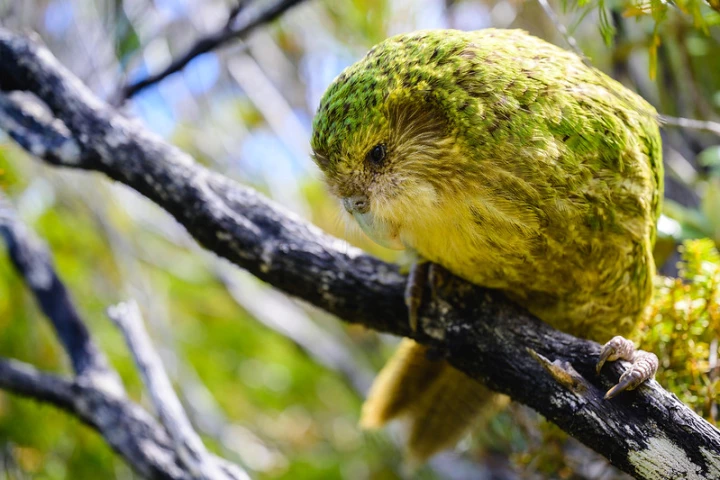Biodiversity
-
A new genus and species of ancient sea worm with an impressive set of star-shaped chaetae has been identified, after its fossil first puzzled paleontologists. Thanks to its alien-worm-like appearance, scientists found a fittingly sci-fi name for it.
-
In 2009, one frisky bird put a spotlight on his extremely endangered species when he mounted a zoologist’s head and proceeded to show the world his best mating skills. Now, in another bold move, four of his flock are returning to New Zealand's mainland.
-
Drug lord Pablo Escobar may be long gone, however he’s still wreaking havoc on his native Colombia thanks to his escaped hippos. Scientists have now discovered there are twice as many as previously thought, and they don't know what to do about it.
-
Casual bird buddies and ornithology obsessives alike can now trek to far corners of the globe and identify any feathered friend they find – as long as they have their phone with them. What's more, the Merlin app can now identify nearly every species.
-
A team led by researchers from the University of New South Wales in Australia has established a new platypus colony in the Royal National Park on the banks of the Hacking River outside of Sydney for the first time in more than half a century.
-
With their little flipper-like wings, these seabirds aren’t exactly candidates for being adept at pumping iron. But, in fact, they are: more than a million pounds of iron flows from their poop into the water annually, and it's crucial for ocean life.
-
After nearly 20 years of negotiations, 193 nations have come together to draft the High Seas Treaty, an agreement that will set the world on track to protect 30% of international waters, fund marine conservation and better regulate sea-bed mining.
-
In a new study, scientists from China, Europe and Australia have examined how rapid urbanization has affected an often overlooked area of biodiversity, soil biodiversity, and how it has impacted human health.
-
In what is being hailed as an historic moment for the environment, world leaders at the UN’s Biodiversity Conference COP15 in Montreal have reached an agreement to ramp up protections of the planet’s precious natural ecosystems.
-
In an effort to keep the world's coral reefs from disappearing forever, a number of reef restoration projects are currently underway … but how can scientists tell if any one of those projects is working? The answer may lie in listening to the reefs.
-
Two new studies collected air samples from zoos and demonstrated the ability to identify a range of animals living there from their airborne DNA. This could eventually be used as a non-invasive way to track biodiversity.
-
Scientists are already able to ascertain what species are present in aquatic environments, by analyzing the cast-off DNA which is present in the water. Now, for the first, a team has conducted an insect survey by analyzing DNA found in the air.
Load More











